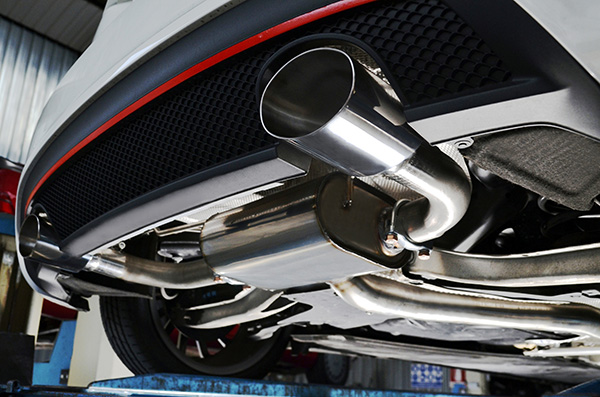
If you've noticed your car's exhaust suddenly making loud noises, it's time to pay attention. Not only can a noisy exhaust be a sign of trouble, but it can also turn heads for all the wrong reasons. But what could be causing this racket, and what should you do about it? We'll share the common causes of loud exhaust, why it's a problem, and how to get your car back to its quiet, smooth-running self.
Why Is a Noisy Exhaust a Big Deal?
A loud exhaust isn’t just an annoyance; it’s often a red flag for underlying issues that could affect your car’s performance, fuel efficiency, and even your safety. Whether it's a growling, hissing, or rattling noise, these sounds can indicate a range of problems, from something as simple as a loose part to more severe issues like a cracked exhaust manifold or a failing muffler. Ignoring these signs can lead to bigger, more expensive repairs down the road.
Common Causes of a Loud Exhaust
Several factors can contribute to a noisy exhaust. Let’s take a closer look at some of the most common culprits:
1. Exhaust Leaks
An exhaust leak is one of the most common reasons for a loud exhaust. If there’s a hole or crack in the exhaust system, it can cause the gasses to escape before they’ve passed through the muffler, resulting in a louder-than-usual noise. Leaks can occur anywhere in the exhaust system, but they’re most common near the joints or where the pipes are exposed to the most wear and tear.
2. Failing Muffler
The muffler’s job is to reduce the noise produced by the engine. If the muffler is damaged, rusted, or has developed holes, it won’t be able to muffle the sound effectively, leading to a louder exhaust. A failing muffler often produces a deep, rumbling sound that’s hard to miss.
3. Loose or Broken Exhaust Components
Over time, parts of your exhaust system can become loose or even break due to vibrations, road conditions, or rust. When this happens, it can cause the exhaust system to vibrate or rattle, producing an annoying noise. This is especially common with older vehicles, where the clamps, hangers, and bolts that hold the exhaust system in place start to wear out.
4. Exhaust Manifold Problems
The exhaust manifold is the first part of the exhaust system that collects gasses from the engine’s cylinders. If the manifold is cracked or if the gasket that seals it to the engine is leaking, it can cause a loud ticking or tapping sound, particularly when the engine is cold. This problem can also allow dangerous gasses like carbon monoxide to enter the cabin, posing a serious health risk.
5. Catalytic Converter Issues
While the catalytic converter’s main function is to reduce harmful emissions, it can also contribute to a noisy exhaust if it’s clogged or damaged. A failing catalytic converter might create a rattling noise, especially during acceleration, and can lead to poor engine performance.
How to Address a Noisy Exhaust
If your car’s exhaust is making loud noises, it’s important not to ignore it. Here’s what you should do:
1. Identify the Noise
Pay attention to the type of noise your exhaust is making. Is it a deep rumble, a ticking sound, or a rattling noise? The specific sound can give you a clue as to what part of the exhaust system might be the issue.
2. Inspect the Exhaust System
If you’re comfortable doing so, take a look at the exhaust system. Check for any visible signs of damage, such as rust, cracks, or loose components. Be sure to inspect the entire system, from the manifold to the tailpipe.
3. Visit Golden Gear Automotive
It’s always a good idea to have a professional inspect your exhaust system. We can accurately diagnose the problem and recommend the best course of action. Whether it’s a simple fix like tightening a loose part or replacing a damaged component, getting the problem sorted out early can save you money and keep your car running safely.
Don’t let a noisy exhaust disrupt your drive. Visit Golden Gear Automotive today for a thorough inspection and expert repairs. We are here to keep your car running quietly and efficiently. Schedule your appointment now!